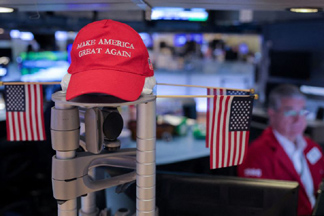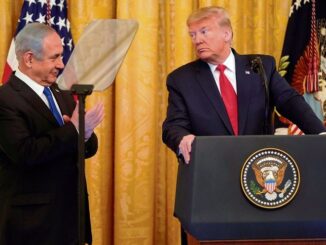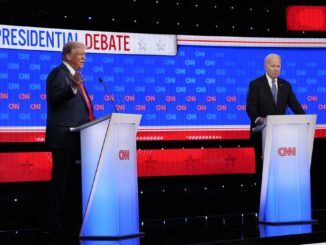
The MAGA policy is bound to hit America’s global image and diminish its long-term influence
“American soft power exerted itself not only through the dollars and cents of its foreign aid funding commitments, but through four main pillars. First, the cultural influence of its entertainment and media industries and its education system that led the world in innovation and technology. The second was the political example of its commitment to democracy, equality and human rights, as well as its vibrant civil society. The third was the power and perceptions it derived from the policies of the institutions it helped create — the UN, World Bank and so on. The fourth, its dynamic consumer-oriented economy ensured that the US has retained its status as the largest economy in the world since WWII.”

In the 1990s, the New York Times carried a report about a Chinese delegation touring Broadway in New York. The visitors’ goal was to learn how that fabled theatre district worked and how it could be reproduced in Shanghai or Beijing. The Chinese understood well that US power was not just in its military, but also in its vibrant culture.
The hallmark of power is the ability of a country to shape the policies of others. This can be through hard power — military and financial — but it is often more easily done through soft power, the attraction and persuasion you are able to exert because of your culture, values and ideology.
For four years after World War II, the US had a monopoly of nuclear weapons. These were the years in which it launched the Marshall Plan to revive Europe and created the NATO military alliance to cement its global authority. But it also helped create the United Nations, the World Bank, the International Monetary Fund, the World Health Organisation, the General Agreement on Trade and Tariffs to provide global governance to deliver public goods in the areas of development finance, health and trade.
These became instruments of US soft power along with the steadily rising American prosperity that supercharged its cultural appeal around the world. The shutdown of USAID, America’s principal aid-giving agency, has brought out just how dramatically the Trump administration plans to gut the ways in which US has exercised power around the world so far.
USAID was the largest donor of official development assistance in the world. The $70 billion it provided annually was spread out among countries where it had strategic interests, such as Ukraine, Jordan and Palestine, and where it provided humanitarian assistance — Sudan, Yemen, South Sudan, Afghanistan and so on.
Tempering hard power with soft has been an established strategy of the US that other countries, including India, have sought to follow. In the 1950s and 1960s, USAID played a significant role in helping India’s development goals in the fields of health, agriculture, food and education. But this was a clever means of deflecting Indian unhappiness arising out of its policy of arming Pakistan.
American soft power exerted itself not only through the dollars and cents of its foreign aid funding commitments, but through four main pillars. First, the cultural influence of its entertainment and media industries and its education system that led the world in innovation and technology. The second was the political example of its commitment to democracy, equality and human rights, as well as its vibrant civil society. The third was the power and perceptions it derived from the policies of the institutions it helped create — the UN, World Bank and so on. The fourth, its dynamic consumer-oriented economy ensured that the US has retained its status as the largest economy in the world since WWII.
These exerted a pull among students and researchers, businessmen looking for opportunity, artistes and performers as well as workers who flocked to the US in ever larger numbers, through legal or illegal means. Around the world, the US was admired for its democratic system, its prosperity and technological leadership. Its culture and fashions were widely imitated and there was a perception that its policies contained a dash of altruism absent from those of other big powers.
Today, all this is being turned inside out. The ‘America First’ policy of the Trump administration seeks to put US interests ahead of everything else. The US President’s attempt to overturn the verdict of the 2020 elections or attack the vaunted judicial system has hit important institutions of democracy.
Under attack within the US are universities, research institutions, charities, the media and even the Church — all of whom are being asked to conform to the demands of the MAGA (Make America Great Again) movement. Trump’s threat to defund universities for alleged transgressions undermines the intellectual freedom that has characterized American culture. Besides undocumented aliens, the Trump administration is making life difficult for foreigners in general, visa holders, tourists, permanent resident or Green Card holders. These actions strike at the very heart of American soft power.
Around the world, American soft power has been envied. Today, Shanghai and Beijing have Broadway-like theatre districts. Besides culture, China has reached out to foreign countries to promote Chinese language through Confucius institutes and scholarships to attract students, another hallmark of soft power. India is another country that uses a mix of soft and hard power to navigate complex foreign policy challenges. This country is a major destination for foreign students.
It is easy to claim that soft power can be given short shrift in our hyper-realist era. But the reality is that hard power by itself cannot achieve what a combination of hard and soft power, or “smart power” can do. Else, China or Russia would be seen as the more desirable countries in the world. Instead, whether it is the rich countries, or middle-income ones, the US is the more preferred option, as it has been for millions of migrants seeking to improve their lives.
Despite Trump, the US is likely to retain its primacy around the world — through its films, music and technology. But by undermining trust among allies and altering the global perception of US values and goals, the MAGA policy is bound to damage America’s global image and diminish its long-term influence.
(Manoj Joshi is a Senior Journalist & Distinguished Fellow, Observer Research Foundation)





Be the first to comment